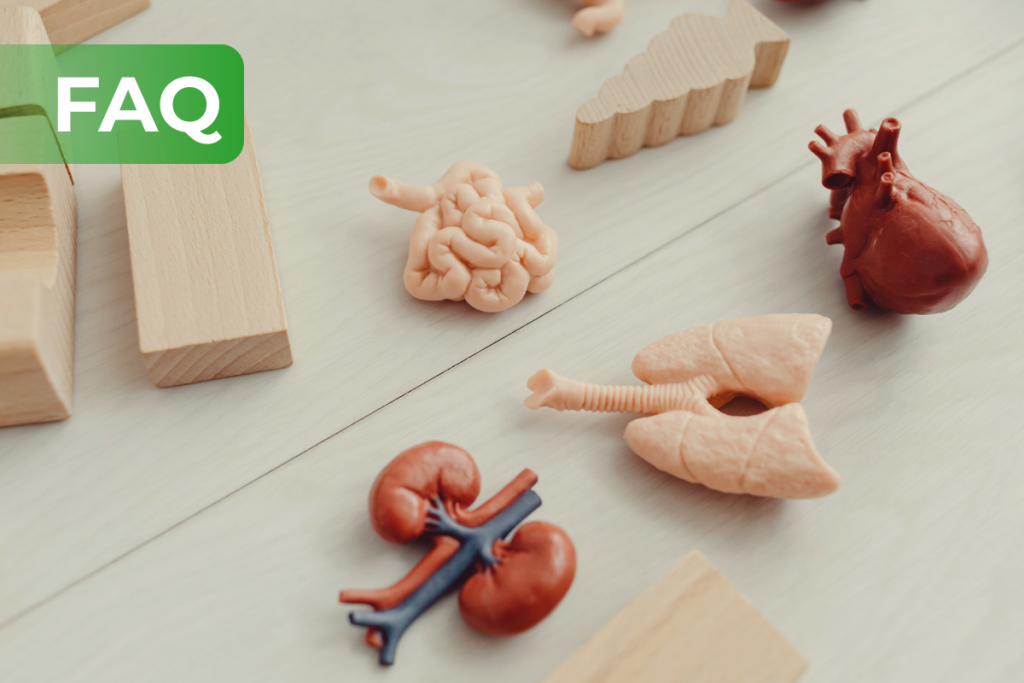
Transplant FAQ
How Many People Need and Receive Organ Transplants?
Since the Organ Procurement Transplant Network began tracking data in 1988, there have been nearly 70,000 Organ transplants in Pennsylvania alone as of June 24, 2025. Nearly 11,300 of those transplants used organs from living donors. In 2024 alone, PA saw nearly 2,300 transplants.1
As of June 24, 2025, nearly 6,000 PA residents are on the waitlist for an organ transplant.2
How Much Does an Organ Transplant Cost?
The billed charges for an organ transplant can vary significantly by organ. As of 2025, the cheapest organ to receive a transplant for, a Kidney, averages $446,800 for a transplant, while the most expensive organ to receive a transplant for, a Heart, averages $1,918,700.3
These are just the averages for single organ transplants. Costs can grow astronomically in cases of multi-organ transplant, and other factors, such as insurance coverage, can impact a patient’s final bill. Additionally, recipients will require immunosuppressant medications, and potentially other prescriptions, for the rest of their lives to prevent organ rejection, and these prescriptions can be incredibly costly, with the average annual cost of medications being between $10,000 and $14,000 per patient.
| Immunosuppressant Medication Drug (generic name) | Estimated cost/month ($) |
|---|---|
| Prograf (tacrolimus) | 1252.80 |
| Tacrolimus | 1068.00 |
| Neoral (cyclosporine, modified) | 701.40 |
| Cyclosporine, modified | 493.80 |
| Cellcept (mycophenolate) | 1886.40 |
| Mycophenolate | 950.40 |
| Myfortic (mycophenolic acid) | 1219.20 |
| Mycophenolic acid | 1094.40 |
| Rapamune (sirolimus) | 1212.00 |
| Sirolimus | 1038.00 |
| Zortress (everolimus) | 1908.00 |
Travel may also be a cost factor, as recipients and/or donors may need to travel for the operation and may require extended lodgings for the duration of their procedure and recovery, which isn’t typically covered by insurance. For example, in Pennsylvania in 2024, 39% of transplant patients had to travel more than 150 nautical miles for their treatment. Nationally, that percentage increased to 46% for the same year.4
Approximately 40% of PA transplant patients use private insurance as their primary source of payment, while approximately 44% use some form of public insurance.5
All things considered, the truth is quite simple; organ transplants are exceedingly, and often prohibitively, expensive for recipients, which is why our foundation’s mission is so important.
How Long Does it Take to Receive an Organ?
Approximately 64% of PA patients currently on the transplant waitlist as of June 24, 2025 have been on the waitlist for more than 1 year.6
The national average wait time in the US varies by organ.
| Organ | Average Wait Time |
|---|---|
| Kidney | 5 years |
| Liver | 11 months |
| Heart | 4 months |
| Lung | 4 months |
| Pancreas | 2 years |
The need for a multi-organ transplant can also impact wait-time.
Transplants involving a living donor allow patients to bypass the national waitlist, dramatically speeding up the transplantation process.
What are the Common Barriers to Transplantation?
As previously discussed, there are numerous barriers to transplantation procedures, from cost of the procedure, including lifetime immunosuppressants, to location and travel, to extensive wait times. Practically speaking, there are only so many organs available at any given time, and the supply is generally much lower than demand, which is a major contributor to the aforementioned barriers. This challenge is made worse by the fact that organs can’t be preserved long-term: organs only remain viable for transplant a scant few hours after being harvested, 4-6 on the short end and 24-36 on the long end, depending on the specific organ.7
Beyond practical barriers though, medical factors can also be a barrier to treatment. These include:
- Advanced age
- Active infection
- recent personal history of cancer
- Additional medical conditions that may seriously reduce life expectancy
- Lifestyle factors (drug and alcohol use)
I Need Help Funding My Transplant; What Do I Do?
Check out our Asking for Assistance page for more info about how we can help you with your transplant costs.
I Can’t Afford Long-Term Lodgings Near my Transplant Center; Can You Help?
Yes! The Transplant Alliance can assist with both direct operation costs and also related costs such as transportation and lodging.
If your chosen transplant center is in or near Philadelphia, you can also contact our partner charity, Gift of Life Howie’s House, for potential assistance.
I Need Help Finding a Living Donor; Can You Help?
The Transplant Alliance is focused on financial assistance only; unfortunately, we do not assist in finding living donors for transplant patients. However, spotlight recipients may use our platform to promote their search for a donor.
We wish you luck on your transplant journey and are ready to offer assistance for costs associated with your treatment.
How Can I Help?
Simply joining us for nights of bingo and fundraising is a small way to help transplant patients in your community. The Transplant Alliance is also always looking for volunteers to helps us run our fundraising events and spread the word.
Registering as an organ donor is also a simple way to help others, as the largest limiting factor in transplantation access is the low supply compared to the growing demand.
You could also look at supporting our partner charities who also do fantastic work supporting transplant patients in need.
- Organ Procurement & Transplantation Network (OPTN) data as of June 24, 2025 ↩︎
- OPTN data as of June 24, 2025 ↩︎
- Milliman’s 2025 U.S. organ and tissue transplants report ↩︎
- Data from the Organ Procurement & Transplantation Network ↩︎
- OPTN data as of June 24, 2025 ↩︎
- OPTN data as of June 24, 2025 ↩︎
- Donor Alliance ↩︎